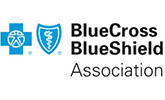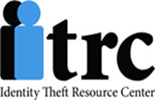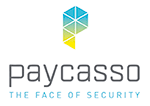Identity fraud expert Adam Levin, chairman of IDT911, provides context for identity theft threats.
Last weekend, TheUpshot published the most dangerous identity theft threat: the non-expert’s tendency to underestimate the magnitude of problem. The piece in question argued that the consequences of most identity theft have been exaggerated (by identity theft experts like me), and that, “only a tiny number of people exposed by leaks end up paying any costs.”
The main source for TheUpshot’s argument seems to be the 2015 Identity Fraud Report (covering data from 2014) published by Javelin Strategy and Research, which found a dramatic increase in account takeovers (i.e., when a fraudster is able to get through the authentication process on an existing credit account and make charges) but an overall decrease in the amount of money lost to identity-related fraud.
To think that the 2015 Javelin report minimizes the threat of mega data breaches to consumers is to misread it. To suggest that the threat is overstated is both simplistic and harmful to consumers. The article focuses too much on account takeover resulting from big-name hacks like Target (a very common form of identity theft). Meanwhile, it gives nowhere near enough attention to the very real and long-lasting effects of more serious forms of identity theft – the kind that’s committed using Social Security numbers – and the equally big-name hacks like Anthem, Premera, and the Office of Personnel Management that exposed millions of records containing that data.
There Are Very Serious Identity Theft Threats
Of greater concern is what does happen to consumers whose information falls into the wrong hands—specifically their most sensitive information. Mentioned nowhere in the article is tax fraud, a crime that is most definitely on the rise and cannot be resolved easily or quickly (think: 6-12 months). Equally absent in this Panglossian take on what really is an identity theft epidemic: medical identity theft, which is extremely difficult to detect, equally difficult to resolve and can have potentially life-threatening consequences.
The bottom line is that while it’s easy to dismiss identity theft experts as being the equivalent of “the soap company that advertises how many different types of bacteria are on a subway pole without mentioning how unlikely it is that any of those bacteria would make you sick,” it is irresponsible to downplay the various serious risks now facing millions of Americans whose most sensitive personal information has been exposed in the breaches of Anthem, Premera, Sony Pictures and the Office of Personnel Management, to name a few. The threat for them is very real, and long-term—perhaps a lifetime.
Click here to read the full article.
August 6, 2015 by Adam Levin, IDT911, credit.com






























